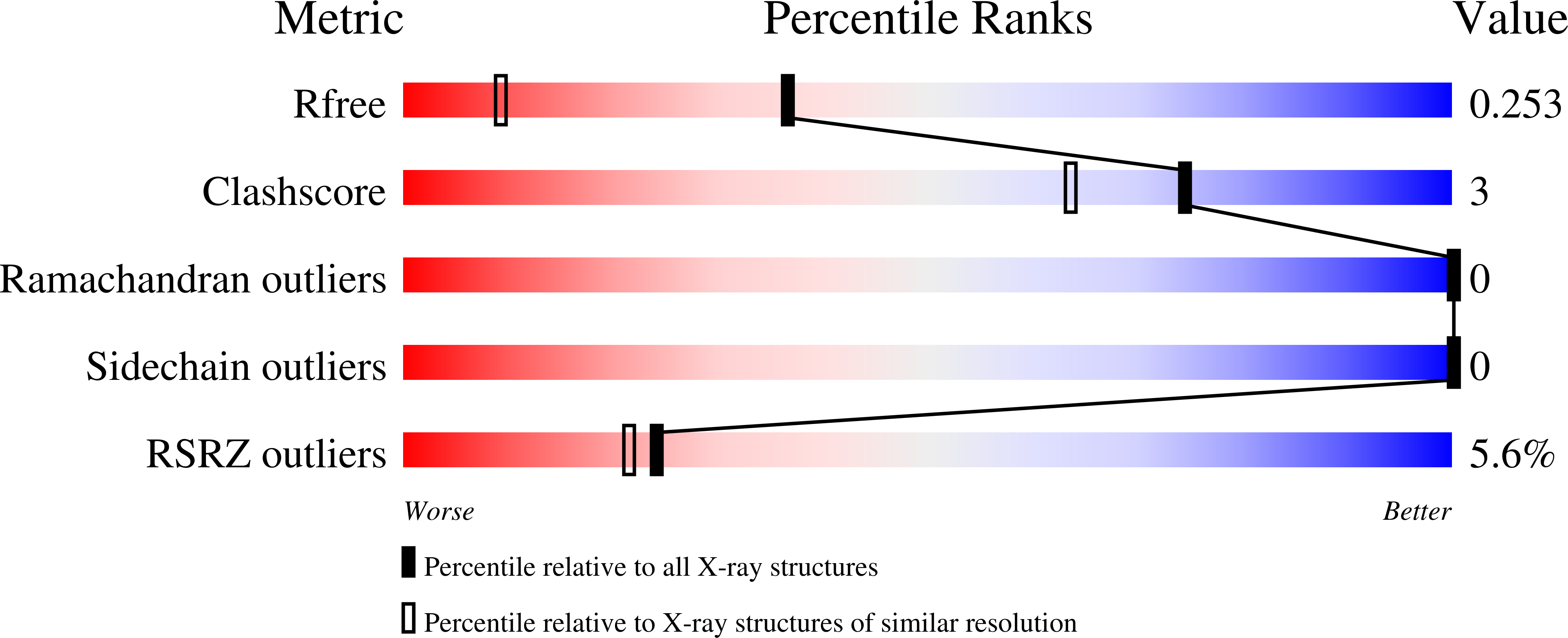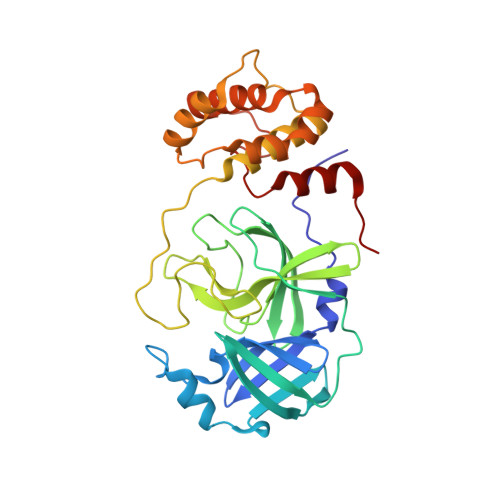Peptidyl nitroalkene inhibitors of main protease rationalized by computational and crystallographic investigations as antivirals against SARS-CoV-2.
Medrano, F.J., de la Hoz-Rodriguez, S., Marti, S., Arafet, K., Schirmeister, T., Hammerschmidt, S.J., Muller, C., Gonzalez-Martinez, A., Santillana, E., Ziebuhr, J., Romero, A., Zimmer, C., Weldert, A., Zimmermann, R., Lodola, A., Swiderek, K., Moliner, V., Gonzalez, F.V.(2024) Commun Chem 7: 15-15
- PubMed: 38238420
- DOI: https://doi.org/10.1038/s42004-024-01104-7
- Primary Citation of Related Structures:
8BFO, 8BFQ, 8BGA, 8BGD - PubMed Abstract:
The coronavirus disease 2019 (COVID-19) pandemic continues to represent a global public health issue. The viral main protease (M pro ) represents one of the most attractive targets for the development of antiviral drugs. Herein we report peptidyl nitroalkenes exhibiting enzyme inhibitory activity against M pro (K i : 1-10?¦̀M) good anti-SARS-CoV-2 infection activity in the low micromolar range (EC 50 : 1-12?¦̀M) without significant toxicity. Additional kinetic studies of compounds FGA145, FGA146 and FGA147 show that all three compounds inhibit cathepsin L, denoting a possible multitarget effect of these compounds in the antiviral activity. Structural analysis shows the binding mode of FGA146 and FGA147 to the active site of the protein. Furthermore, our results illustrate that peptidyl nitroalkenes are effective covalent reversible inhibitors of the M pro and cathepsin L, and that inhibitors FGA145, FGA146 and FGA147 prevent infection against SARS-CoV-2.
Organizational Affiliation:
Centro de Investigaciones Biol¨®gicas Margarita Salas (CSIC), Ramiro de Maeztu 9, 28040, Madrid, Spain. fjmedrano@cib.csic.es.















